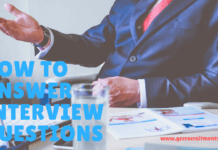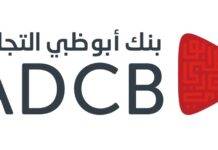Table of Contents
Questions for interviewing on critical thinking examine a candidate’s ability to evaluate, analyze the implications of their thinking, and think critically. Here we are discussing about best critical thinking interview questions to ask in an interview.
Are they able to connect the dots between different issues and concepts? The standard job interview isn’t enough to judge whether a person has what requirements to succeed in the job. Asking critical questions helps assess if a candidate meets the job’s needs and expectations.

Rush to hire in interviews may be one of the factors leading to many employees leaving their positions, due to returning to hiring processes and spending more time and energy on them. Most positions require candidates who can think independently while reflecting to strengthen organizational processes.
Finding candidates suited for jobs can often be challenging. Therefore, investing in critical thinking interview questions is vital in order to identify those that meet all expectations and needs for the position; additionally these questions help identify someone with fresh ideas or new approaches who could bring something different and new perspectives into it.
What are the benefits of using critical thinking interview questions?
Utilizing critical thinking interview questions helps assess whether candidates possess:
- Responsible enough to effectively address issues and implement follow-up plans.
- Creative problem-solvers tend to approach solving situations differently and think outside the conventional boxes.
- Capable of analyzing and solving issues even without access to required information or resources.
- Are they capable of explaining their reasoning process and accepting responsibility for their decisions?.
- Students can envision themselves as characters and visualize what type of work they will be performing.
Interviewers must ask job-relevant questions designed to highlight a candidate’s abilities, not ones which make nervous interviewees nervous. Asking nerve-racking inquiries would only serve to hinder finding the ideal person for the role.
Questions such as, “How many cars can be found at (name the location) at this moment in time?” may not demonstrate your abilities as an applicant. Instead, tests like, “Explain blockchain to a four-year-old,” demonstrate your capacity to effectively communicate with different audiences.
Remind yourself that the purpose of these questions isn’t simply to assess whether a candidate provides the appropriate or incorrect responses; rather, their primary purpose should be evaluating how a candidate handles situations outside their usual routine.
Examples of Interview Questions: Critical Thinking Interview Questions
These critical thinking interview questions and other behavioral and cognitive questions assist in finding the perfect candidate for the top position.
- Describe a time when you faced problems without using all available resources.
- Have you made quick decisions in a crisis? What approach did you take, and were the results satisfying?
- Share an achievement where you met a target.
- Have you held a leadership role? What was the outcome?
- Describe a time when you anticipated and prevented a problem.
- How do you handle disagreements with colleagues?
- Have you received criticism at work? How did you respond?
- A customer received a defective product and is causing a disturbance. How would you handle this situation?
- Explain the importance of A/B testing to young teenagers.
- What book did you recently read and enjoy?
- Have you gone above and beyond on a project? What made it interesting?
- Reflect on what you might have done differently in your previous job.
- What aspects didn’t you like about your previous job?
- Have you faced challenges in maintaining determination? How did you overcome them?
- Where do you see yourself in five years career-wise, and how do you plan to achieve it?
- What would you do if your boss presented inaccurate information during a live presentation?
- Have you ever corrected or suggested a different approach to your manager?
- How would you convince team members to cooperate on a project they’re struggling to complete?
- Do you often persuade others that your approach is the best?
- How would you handle a colleague’s puzzling solution to a company problem?
How to assess Critical Thinking in Candidates
Answering interview questions designed to assess critical thinking requires candidates to draw upon past experience or analytical abilities to provide answers that reveal who the individual really is – their response will show whether or not they make sound judgements and can make strong predictions, for instance in this question:
“Please describe an instance when you were faced with an issue but had limited resources at your disposal.”
Candidate’s must be quick-thinking and demonstrate resourcefulness when responding. They should describe how they used the information available to assess a situation, evaluated outcomes of various actions proposed, researched prior to taking them, assessed effects post action taken then researched its outcomes again – this demonstrates confidence when taking decisions, taking risks or dealing with conflicts; lessons must also be discussed that were learned throughout this process in order to enhance final result.
Candidates who recognize their past mistakes and use these lessons to avoid repeating them in the future are highly sought after candidates for any job role. When screening potential hires, evaluate each candidate based on these criteria:
- Get advice or assistance if you are having difficulties.
- Be mindful of your goal to attain business success and recognize its necessity through teamwork.
- Display teamwork and skills while making effective, practical decisions.
- Display past modifications or adaptations made to your work practices.
- Persevere in difficult circumstances even without immediate solutions in sight.
- Make sure that your actions can be rationally justified.
Do not choose those who:
- Do not make assumptions or check facts before entering any premises or making any judgment calls.
- Do not assume anything for granted and make assumptions. Be wary of taking things at face value or making snap judgments on situations.
- Fail to address and attempt to solve an issue
- Answer the obvious queries or provide immediate responses that come up in their heads at that very moment.
These critical thinking interview questions can assist in selecting individuals with critical and independent minds; people capable of solving issues creatively while improving your organization.











